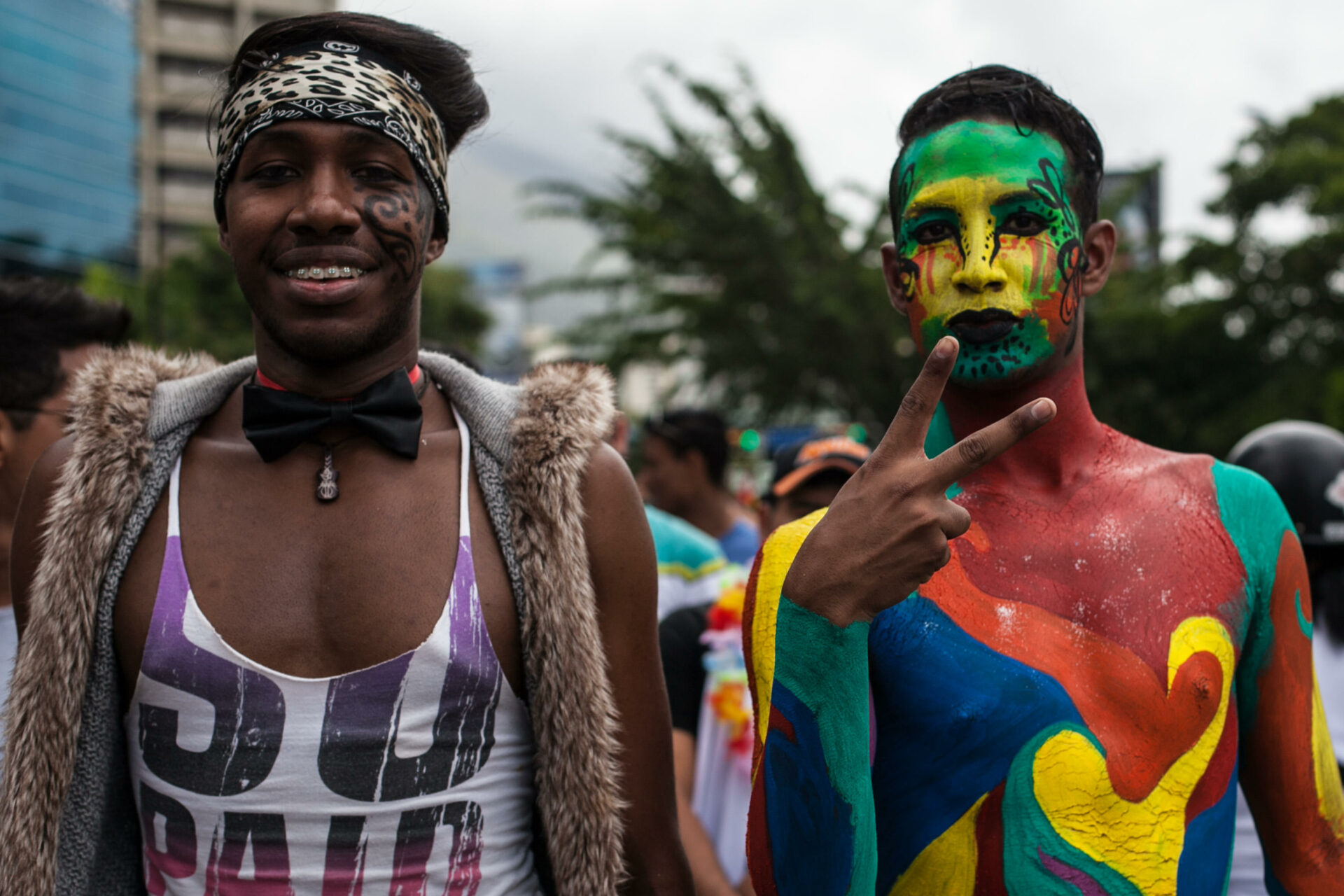‘Venezuela is still a dangerous place to live as an LGBTQ person’
Maria (not her real name) on life as a trans woman living in a small town outside Caracas, Venezuela.

I’m a 20-year-old woman living in a town called Guatire, not far from Venezuela’s capital city, Caracas. Gay sex was legalised here in 1997, but Venezuela is still a dangerous place to live as an LGBTQ person. Many of my queer friends have left the country because of homophobia, transphobia and problems such as poverty, hyperinflation, and political instability. All of these issues relate to Nicolás Maduro Moros’s presidency, which has been under dispute since 2019. Many view him as a dictator.
If I were to score how safe it is for the remaining LGBTQ people here, with one meaning completely safe and 10 being totally dangerous, I would say it’s 2 or 3/10 for lesbian, gay, and bi people who look cisgender and heterosexual. If they happen to look trans or queer, I would say 10/10. For trans people who are ‘cis-passing’ (meaning they pass as cisgender so no one questions their gender based on how they look), I would say 8/10. For trans people who aren’t ‘cis-passing’, I would say 10 or even 20/10 — really dangerous. Some of my transgender friends have suffered horrific abuse, including being beaten up in the street.
Because of this, when I started my transition a few years ago, I kept the fact that I’m trans a secret. I only told a small circle of trusted friends. Nowadays I can pass comfortably as a woman.
However, in Venezuela, there are no laws regarding gender identity. Most trans people aren’t allowed to change their names or gender markers on their ID. This impacts my life in many ways. I’m uncomfortable about showing my ID. It does not reflect who I am and how I look, but changing my ID is not possible here. This is hugely limiting.
“Gay sex was legalised here in 1997, but Venezuela is still a dangerous place to live as an LGBTQ person.”
– Maria (not her real name)
Furthermore, there is nothing like the NHS in my country, so accessing professional help and support for my transition is simply not possible. I’m lucky enough to live in a digital age; I don’t know what I would have done if I were in the same situation 20 years ago. I’ve been able to conduct online research on transitioning, I have also received advice from professionals in the
US and elsewhere, and I have been able to connect with LGBTQ people internationally via social media.
Being trans has also affected my relationship with my family, who were initially unsupportive of my transition. I now live separately from them – they are in Caracas – and perhaps thanks to the distance they’re slowly coming around a little bit. Their attitude is: ‘We don’t like it, but it is what it is.’
I’m able to live alone and support myself financially by working as a model, but I don’t have enough money to leave Venezuela. In five years’ time, I’d like to think I’ll be working as a model in another country, but it’s hard to imagine. Part of me wants to stay because I love my country and would miss my loved ones. In fact, in some ways, I’m happy here. But I realise I am massively privileged to be able to say that. I can live my life as a trans woman and go about my routine without experiencing transphobia on a daily basis. Some trans people I know do not or are not able to present the way I do – which, of course, is totally OK – but it makes them vulnerable. My experience is certainly not reflective, either, of every trans person on the continent. Brazil, for example, has the highest rate of murder for trans people worldwide, despite its reputation for being a gay-friendly destination.
Misogyny is also a huge problem in Venezuela – it’s the bigger issue for me – and given my circumstances, I’m not dating or looking for a boyfriend right now. A toxic ‘machismo’ culture permeates; I can’t walk down the street without getting sexually harassed by men. There is a similar culture in nearby Colombia, where I lived as a teenager. Given the choice, I’d prefer to live in Colombia now, as trans people at least have some legal rights.
